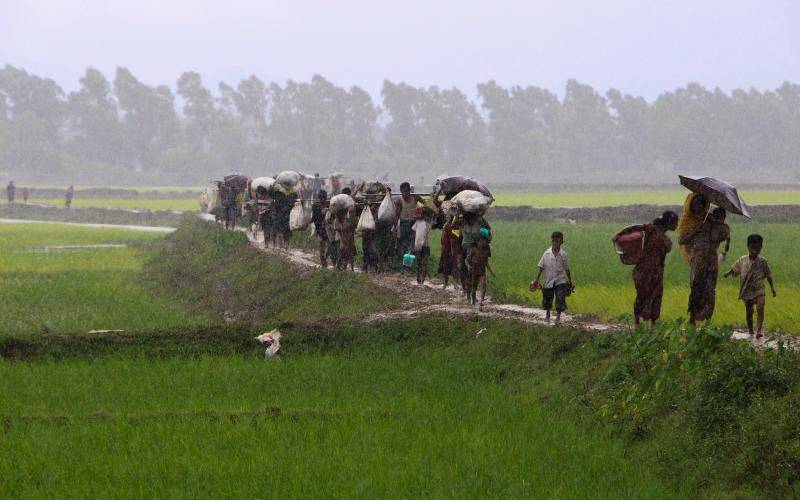
Rohingya refugees from Rakhine state in Myanmar walk along a path near Teknaf in Bangladesh on September 2, 2017. Around 400 people most of them Rohingya Muslims have died in violence searing through Myanmar's Rakhine state
By the time you finish reading this, more people would be dead in Myanmar. So far 700 have died. This bloodletting is courtesy of the military junta that toppled the elected government of Aung San Suu Kyi on February 1, 2021. Civilians have taken to the street. The military is responding with live bullets.